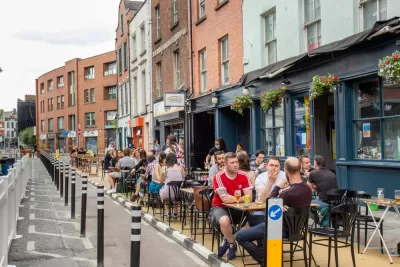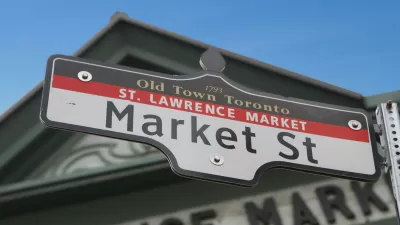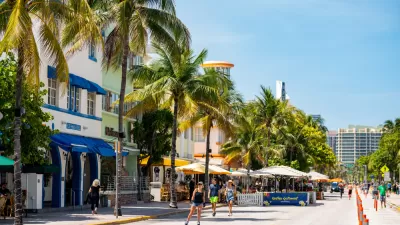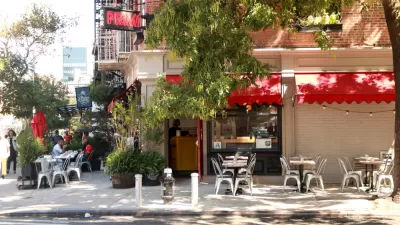While some open streets experiments have met with backlash from community members, others were so successful they led to permanent changes.

An article by Maylin Tu in Next City expounds on the benefits of car-free streets, which got a shot in the arm during the Covid-19 pandemic and, in some cities, are having lasting impact.
Tu lists the common arguments against open streets and the evidence debunking them, going on to describe four cities where open streets experiments are still going strong. “Car-free advocates would say that as greenhouse gas emissions and traffic violence go down, happiness and connection go up — it’s hard to connect with your neighbors while ensconced in two tons of steel.”
The four featured projects: San Francisco’s John F. Kennedy Drive, which winds through Golden Gate Park and has been closed to cars on Sundays since 1967; Griffith Park Drive in Los Angeles, which was closed to cars after the death of a cyclist in April; 34th Avenue in New York City, which, although not permanently closed to vehicle traffic, hosts a vibrant community of events and classes during daytime hours; and Dublin’s Capel Street, now the longest car-free street in Ireland.
Tu points out that well before the pandemic, cities like Paris, Bogotá, and São Paulo were experimenting with projects like car-light or car-free streets, open streets events, and parklets, but the success of pandemic-era programs has, in some cases, accelerated efforts to reclaim public right-of-way from cars.
FULL STORY: In These Cities, Car-Free Streets Are Here To Stay

Maui's Vacation Rental Debate Turns Ugly
Verbal attacks, misinformation campaigns and fistfights plague a high-stakes debate to convert thousands of vacation rentals into long-term housing.

Planetizen Federal Action Tracker
A weekly monitor of how Trump’s orders and actions are impacting planners and planning in America.

Chicago’s Ghost Rails
Just beneath the surface of the modern city lie the remnants of its expansive early 20th-century streetcar system.

Bend, Oregon Zoning Reforms Prioritize Small-Scale Housing
The city altered its zoning code to allow multi-family housing and eliminated parking mandates citywide.

Amtrak Cutting Jobs, Funding to High-Speed Rail
The agency plans to cut 10 percent of its workforce and has confirmed it will not fund new high-speed rail projects.

LA Denies Basic Services to Unhoused Residents
The city has repeatedly failed to respond to requests for trash pickup at encampment sites, and eliminated a program that provided mobile showers and toilets.
Urban Design for Planners 1: Software Tools
This six-course series explores essential urban design concepts using open source software and equips planners with the tools they need to participate fully in the urban design process.
Planning for Universal Design
Learn the tools for implementing Universal Design in planning regulations.
planning NEXT
Appalachian Highlands Housing Partners
Mpact (founded as Rail~Volution)
City of Camden Redevelopment Agency
City of Astoria
City of Portland
City of Laramie





























